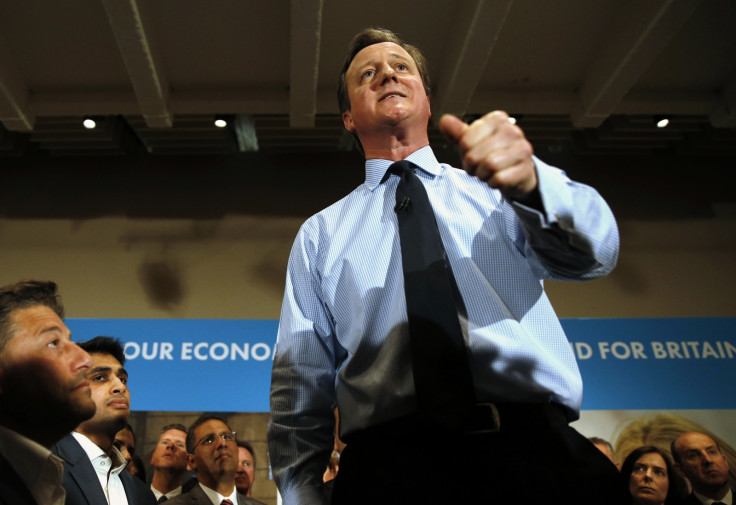Election 2015: Tories promise 50,000 extra apprenticeships on new £200m bank fines

A Tory government would create 50,000 new apprenticeships for young unemployed people by introducing a new set of fines on banks, David Cameron has announced today (28 April).
The prime minister said that the Treasury could raise £200m ($304m) under the proposed new Libor legislation, which would clampdown on financial firms who manipulate the lending rate.
Cameron explained that the policy is part of his party's plan to "abolish" long-term youth unemployment.
"We're going to take the fines from the banks who tried to rig markets – and we're going to use it to train young people and get them off the dole and into work," the prime minister said.
"This is about taking money off those who represent Labour's failed past; and giving to those who through their hard work and endeavour can represent a brighter Conservative future.
"This is about offering hope, spreading opportunity, sharing prosperity – it's about securing a better future for you, your family and for Britain, and from now until polling day I'm going to fight for that future with every ounce of energy in my body."
But the pledge came after official figures showed that the number of under-25s starting an apprenticeship fell last year.
The amount of young people enrolling on the vocational courses dropped by 1,000 between 2012/13 and 2013/14, according to the data from the Department for Business.
"Under the Tories, the number of young people starting apprenticeships has fallen in the last year. The proportion of apprenticeship starts by young people is down by almost a quarter during their time in office," Chuka Umunna, Labour's shadow business secretary, said.
"At the same time, we've seen the quality of apprenticeships undermined. One in five apprentices is receiving no formal training, while almost four in ten firms are unaware the in-work training they provide is branded as an apprenticeship by the government."
Elsewhere, Nick Clegg put down a "red line" for the Liberal Democrats over education, declaring that his party would not go into a coalition unless the partner party committed to increasing the education budget in England.
The deputy prime minister also called for a so called "Stability Budget" within the first 50 days of the next parliament, which would set out the next government's plan to tackle the budget deficit.
© Copyright IBTimes 2025. All rights reserved.






















